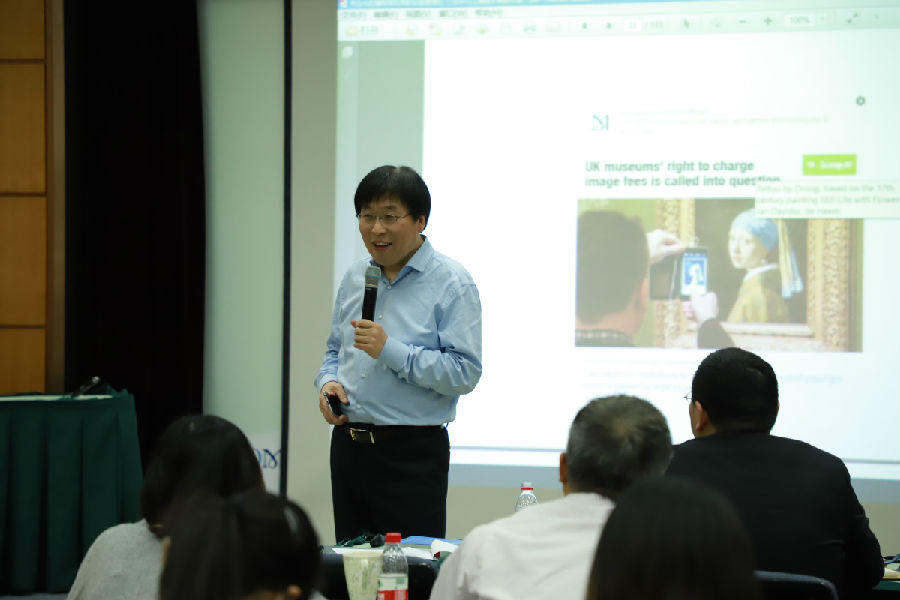ICOM Vice President at QLM: Professional Museums and Its Code of Ethics
2018年04月10日

Vice president of International Council of Museums, Vice President and Secretary General of Chinese Museum Association, Prof. An Laishun delivered a lecture at QLM for Shanghai museum professionals on April 10th about the significant issue of museum ethics.
Recalling the professional development of museums in the historical perspective, museums evolved from an auxiliary institution to an independent organization and come to realize that they should take more social responsibilities in the service of public interests. Therefore, a new path has emerged that combines two functions both internal collection, preservation and research, and external opening doors to the public and serving the society. It took 40 or 50 years for both the museum sector and the public sphere to reconcile and finally agree to the consensus that museums should not confined to a certain discipline or academic research, but are public institutions that should take account of the social needs.
The definition of museums the sector generally take are from ICOM: “A museum is a non-profit, permanent institution in the service of society and its development, open to the public, which acquires, conserves, researches, communicates and exhibits the tangible and intangible heritage of humanity and its environment for the purposes of education, study and enjoyment.” Although this definition survives seven modifications after it was initiated in 1974, the ultimate purpose of a museum to serve the society and its development has remained unchanged whatsoever.
Museums have undergone a transition of focusing on objects to recognizing the pivotal role of a human being. The role museums are playing in the society is a bridge connecting objects and human beings, as well as history and reality. After entering the 21 century, museums are more diverse and with more vitality, in which four functions are eminent: memory storage of indigenous and traditional culture, cultural cohesion of different civilizations and globalization, propellant of cultural innovation and the epitome of a nation’s culture consciousness.
The cornerstone of ICOM is the ICOM Code of Ethics for Museums. It sets minimum standards of professional practice and performance for museums and their staff. A museum’s moral code entails its recognition to public interests and the commitment to dedicated daily operation, thus cultivating a trust for the public to museums. Museum ethics is an everlasting issue that constrains both museums and professional practitioners concepts and choices in their working environment, and will evolve with the dialogue and adaptation with the society.
ICOM Code of Ethics for Museums incorporates the following principles:
Museum preserve, interpret and promote the natural and cultural inheritance of humanity.
Museums that maintain collections hold them in trust for the benefit of society and its development.
Museums hold primary evidence for establishing and furthering knowledge.
Museum provide opportunities for the appreciation, understanding and management of the natural and cultural heritage.
Museums hold resources that provide opportunities for other public services and benefits.
Museums work in close collaboration with the communities from which their collections originate as well as those they serve.
Museums operate in a legal manner.
Museums operate in a professional manner.
